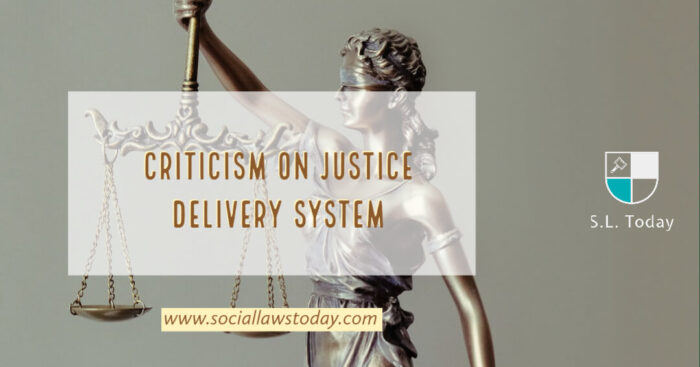
By K Raveendran
Chief Justice D Y Chandrachud could not have been more right when he suggested that justice is delivered only when an individual feels confident that he will not be arrested or his house demolished arbitrarily. While the widespread demolitions being carried out at Nuh, primarily aimed at the members of a particular community, provides a different context for the CJI remarks, what is not to be missed is his emphasis that democracy and justice will be seen in action only when the last man on the street feels confident that he is safe.
The success of democracy does not lie in the lofty speeches being made in parliament or within the four walls of courts, but in the conduct of the government representative at the lowest level, who for all practical purposes constitutes the final arbiter for people at the lowest level of the system. For them, he is the government, the court and everything that devolves from power. The complex layers of safeguards that democracy and rule of law are supposed to provide simply do not work for him. As long as he and his community of people feel insecure about what the authorities can do or will refuse to do, it can be safely assumed that democracy has not worked for them.
While taking part in the Independence Day celebrations at the Supreme Court on Tuesday, the Chief Justice said the greatest challenge before the Indian judiciary was to eliminate the barriers to accessing justice and make sure that judiciary is inclusive and accessible to the last person in the line. The idea behind the judicial system is to create a mechanism that is more accessible and cost-effective for the people by overcoming the procedural barriers to justice.
“As I look to the future, I believe the greatest challenge before the Indian judiciary is to eliminate the barriers to accessing justice,” Dr D Y Chandrachud said. “We have to enhance access to justice procedurally by eliminating the constraints which prevent citizens from approaching courts and substantively, by building confidence in the courts’ ability to dispense justice,” he added.
There are serious issues about the delivery of justice in India. Things work out in picture perfect fashion for those who can afford it, but there is no universality about such privilege. For the selected class of people, there are enough safeguards and more to secure justice. The very concept of justice is tailored to meet the requirements of such privileged class. But for the rest of the people, judicial process is a painful experience, which gets them neither justice nor equity.
Even access to the judicial system is highly restrictive as vast sections of people are debarred from it by the sheer distance between themselves and the courts. This is not to speak of cultural, economic and political barriers that prevent them from even thinking of recourse to courts as a viable option. The system continues to favour the privileged few. For those who have the resources, the judiciary is the ultimate protector of liberty, freedom and justice and at times justice is specially tweaked in their favour.
The majority of people are intimidated by the goings-on in the courts, the procedures, the robes worn by the judges and the advocates and the very air in the court rooms. The proceedings are conducted in a language that the majority do not understand and they stand clueless even when judgments are delivered. The CJI himself has pointed out the judgments written in English are not comprehensible to 99.9 percent of citizens, particularly in the legal form.
In this respect, the CJI said he was looking forward to the time when court proceedings are done in regional languages. As a beginning, over 9,000 judgments have already been translated into regional languages and the effort is to make all the 35,000 judgements of the Supreme Court available in every language. This is expected to help facilitate the use of regional languages in the subordinate courts. “What use is it to say you can argue in a regional language if the judgements are not in regional languages”, Justice Chandrachud wondered.
The CJI has indicated the possibility of employing artificial intelligence and other technologies in translating court judgments. Of the judgments translated already, over 8,000 are in Hindi while some have been translated into Assamese, Bengali, Garo, Gujarati, Kannada, Khasi, Malayalam, Marathi, Nepali, Odia, Punjabi, Tamil, Telugu and Urdu. (IPA Service)
The post Justice Delivery Not Meaningful Until Last Man Feels Secure Against Authoritarian Action first appeared on Latest India news, analysis and reports on IPA Newspack.


